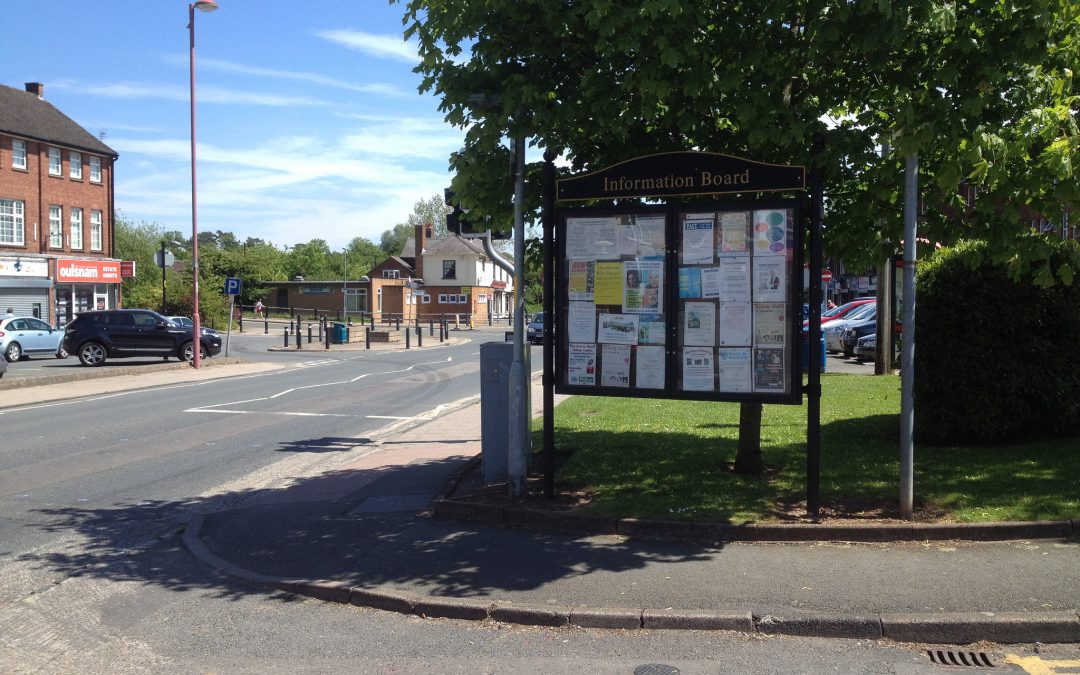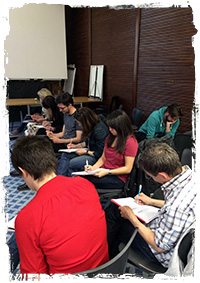Hi Jerome, congratulations on passing your viva! How does it feel?!
Good! It really did feel like the final but also biggest hurdle, and I’m glad to have got through it.
What was your PhD title?
Hyperlocal community media audiences: An ethnographic study of local social media spaces and their place in everyday life
Can you explain in a couple of sentences what your PhD was about?
I was exploring audiences of local community Facebook Pages, one in Wolverhampton, and one in south Birmingham. To date, there has been more work about the people who set them up, or this kind of media globally, but not so much about the more banal, everyday practices people take part in in UK contexts, so that was my focus.
Can you sum up your PhD experience in three words?
So many words.
What was the viva like?
First of all, the mock viva was so helpful. If you’re offered one, take that opportunity because it really exposes the things you’re doing but can iron out or adjust for the real thing – with me it was about taking time to reflect, take notes and think after each question, before opening my mouth to answer. That then helped me on the day. It also made me realise some of the obsessive preparation I’d done was probably not so necessary.
The viva itself was sometimes challenging, sometimes quite conversational. Some of the questions really did take a bit more thinking about, others felt more like ideas or thoughts that might have occurred to the examiners as part of our discussion, just expansions. They started by asking me to summarise my research, and I’d prepared that beforehand in my head, with notes on paper – but as I‘d practiced it I didn’t end up really needing the notes. I had plenty of other notes I didn’t even refer to, including the whole PhD printed itself. But it did feel good to know I had them there to call on if necessary, and the act of putting those notes together certainly helped me focus on some key areas.
Also having my supervisor there was helpful – having him sat behind me taking notes wasn’t as off putting as I might have thought, and his notes and support throughout the process was really helpful in doing a post match breakdown. Again, I’d suggest people take that opportunity of having the supervisor present.
What are your top tips to someone preparing for their viva?
Nathan Ryder’s Tiny book of viva prep is useful, as was PGR Studio’s Viva Survival session – I actually went to it twice! I also scoured the Internet for likely, generic questions that any viva might throw up. This one was useful. I researched the examiners and the kind of perspectives they might have on my work i.e. what they might ask me as a result. I read through my entire PhD and made notes throughout, and added to my list of possible questions with those of my own ‘If I was examining this, what would I ask?’. I also added questions that my supervisors had suggested might come up. By that time I had 76 questions, so I used a random number generators to fire questions at myself, to practice the whole process – it might seem a bit obsessive, but it did really help calm me into realising I could ask most of these questions, or at least take time to think about it first, before answering.
However, everyone will want to prepare differently – whatever gives you confidence that you feel prepared, but without overdoing it and panicking yourself. I also benefitted from having just seven weeks between submission and viva, so it wasn’t too long.
Any advice you’d tell your earlier PhD self now you’ve made it to the other side?
There were a few things I could have tweaked in the writing itself that might have avoided some of the questions that came up in the viva, but it seems like it’s hard to guess what might come up. There were things I thought would come up in the viva that didn’t, and a few things that did come up, I hadn’t anticipated.
What are you up to now and any exciting plans for the future?
Doing my corrections (almost there) and having conversations with people about the best route for publishing this work, balancing out the fact this is relatively timely work, but also wanting the best mileage from it. I’m also considering ways to extend the work of this thesis in a slightly different direction, getting back to fieldwork and participatory research with communities.
Thanks so much for your time Jerome!



